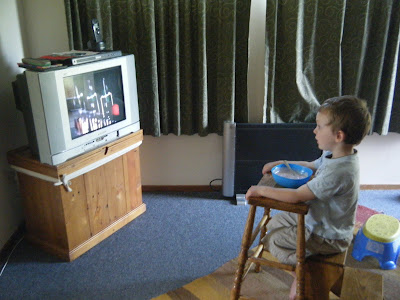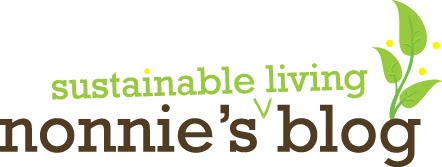
My husband I and just had a conversation while he was cleaning fish, which was of a subject that my thoughts run across all the time. His father always boiled the fish heads to feed to their cat, he never threw them away. Every time Shane cleans fish he feels very guilty about throwing away so much of the fish, and just eating part of it. He just caught some beautiful very big snapper, with their magical blue spots. We are going to boil the heads this time, and not waste the fish. His father hadn't "slipped down" to that level of wasteful behaviour, and if we don't as well, we are not slipping down -- the skills of his generation won't be lost by us.
I was talking to him about the native American people (First Nations, "Indians"). When our culture first had contact with them, there was a real contrast of our culture with theirs, the modern path we had taken, and the way we all used to live. The native women, I still have this impression burned into my mind from when I learned how the native women would use all the parts of the buffalo, they wouldn't waste anything. In contrast, we have become very wasteful. I just have a really beautiful image of that-- the women being so careful and resourceful.

Painting by Charles Shaw, found at this link:
http://www.texasbeyondhistory.net/kids/hunting/mass.html
[Shane slices away the strip in the fillet containing the bones and throws it into the pot, already very full.] "See? Now that would have been wasted." It just feels wrong to waste the life of that beautiful fish.
 P.S.
P.S. One thing I am proud of is that I have continued to keep my one good knife sharp. When Shane needs to clean a fish, I sharpen it. It's that one step forward and I hold onto it....




 For kids--
For kids-- Pass the Energy, Please! Written by biologist Barbara Shaw
Pass the Energy, Please! Written by biologist Barbara Shaw  My husband I and just had a conversation while he was cleaning fish, which was of a subject that my thoughts run across all the time. His father always boiled the fish heads to feed to their cat, he never threw them away. Every time Shane cleans fish he feels very guilty about throwing away so much of the fish, and just eating part of it. He just caught some beautiful very big snapper, with their magical blue spots. We are going to boil the heads this time, and not waste the fish. His father hadn't "slipped down" to that level of wasteful behaviour, and if we don't as well, we are not slipping down -- the skills of his generation won't be lost by us.
My husband I and just had a conversation while he was cleaning fish, which was of a subject that my thoughts run across all the time. His father always boiled the fish heads to feed to their cat, he never threw them away. Every time Shane cleans fish he feels very guilty about throwing away so much of the fish, and just eating part of it. He just caught some beautiful very big snapper, with their magical blue spots. We are going to boil the heads this time, and not waste the fish. His father hadn't "slipped down" to that level of wasteful behaviour, and if we don't as well, we are not slipping down -- the skills of his generation won't be lost by us.
